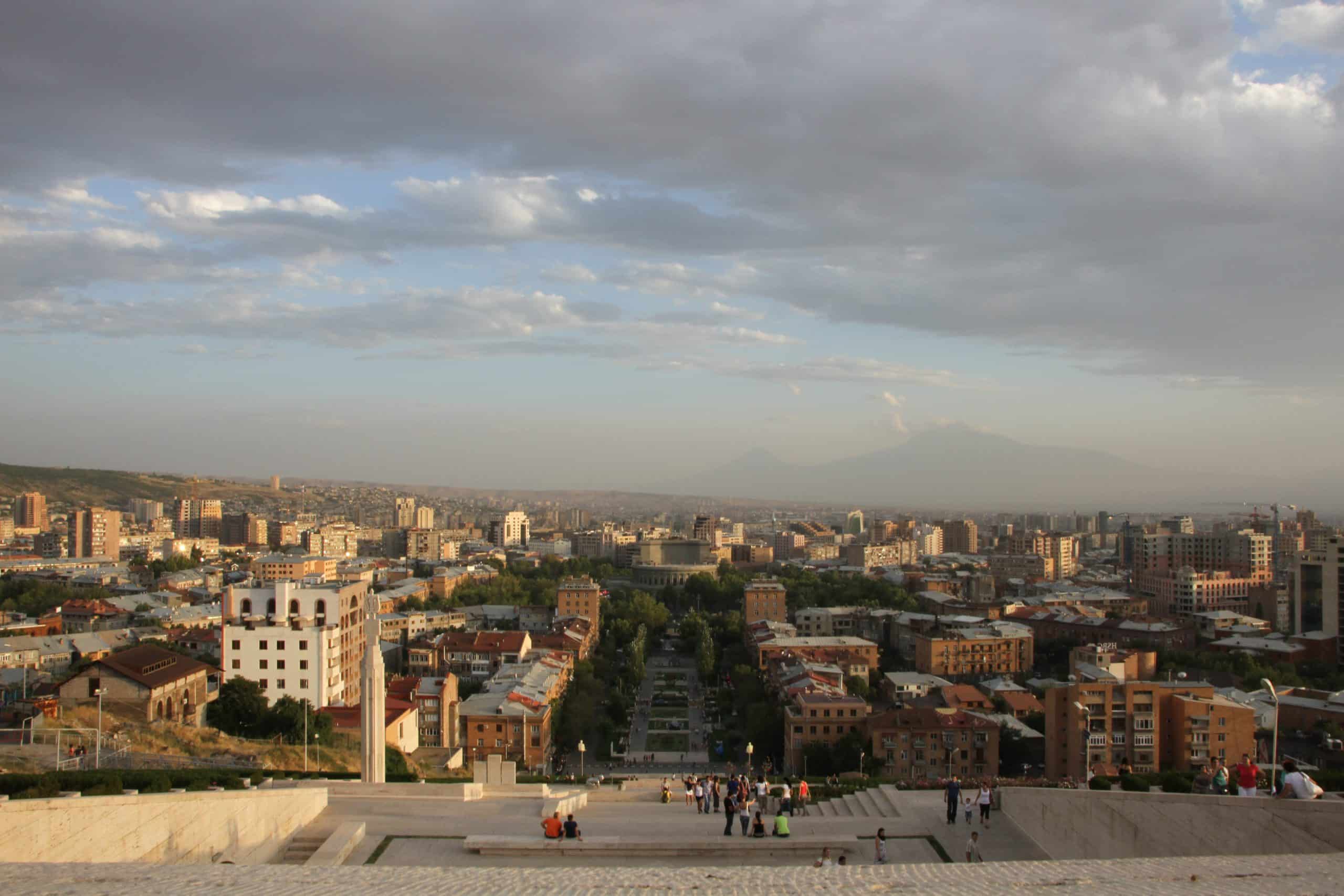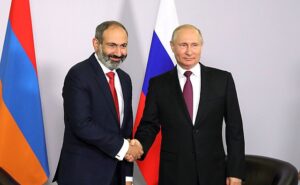The My Step alliance, allied to Prime Minister Nikol Pashinian, has won a landslide victory of 81% in Sunday’s elections for the municipal council of Yerevan, Armenia’s capital city. Its top candidate, Hayk Marutian, is thus the unquestionable next mayor of the city. The elections, the first since this year’s Velvet Revolution that installed Pashinian as PM, were seen as a major first test for the post-revolutionary government. It seems the government has passed that test with flying colours.
Course of the mayoral elections
After former mayor of Yerevan Taron Margaryan from the former ruling party Republican Party of Armenia (HHK) resigned in July because of allegations of corruption, elections for a new mayor were inevitable. These elections were the first after the ‘Velvet Revolution’ that took place in April and May, which ousted former president Serzh Sargsyan and his Republican Party of Armenia (HHK) from power, and installed protest leader Pashinian as PM. In advance, media outlets claimed that these elections would be the first test of the mandate the new Prime Minister really has with the Armenian people, as around 40% of them live in the capital.
According to the Central Election Commission (CEC), which published final preliminary election results on 24 September, 43.7% of Yerevan’s citizens entitled to vote did so. This led to a higher voter turnout than the 41% obtained in the mayoral elections of May 2017.
The Prosperous Armenia Party (BHK) finished second with 7% of the votes, and the Luys Alliance gained a third place with 5%. Other parties participating in the elections, including Armenian Revolutionary Federation-Dashnaktsutyun (ARF) which has been in government many times in the past years, gained less than 2% each. The former ruling HHK did not even participate. The elections, however, were generally praised as democratic by politicians throughout the political spectrum, from Pashinian himself to Davit Akobian from the ARF.
Mayoral elections in Yerevan, or elections in general, were not always as peaceful and voluntary as they were on 24 September. Even though Armenia’s 2015 switch from a presidential to a parliamentary republic did improve the freedom Armenians had when voting, during the May 2017 municipal elections there were still accusations of vote rigging and of collecting people and bringing them to polling stations by busloads. The Velvet Revolution, led by Pashinian, seems to have put an end to these practices, as local monitors and media outlets have reported that there was “an unusually small number of irregularities or violent incidents.”
Pre-term general elections
Already while calling upon Yerevan citizens to vote for My Step on the day of the elections, Pashinian added that a vote for that political bloc meant a vote for pre-term parliamentary elections in the near future. He made this urge as his Parliament still has a pre-revolutionary HHK majority, which is in a position to block any of his initiatives. After the elections, he saw even more ground for such an urge, and he stated that pre-term elections are the wish of the Armenian people, which was made clear through the outcome of the Yerevan elections. Members of the HHK have expressed their discontent at such pre-term elections.
Considering the landslide win that Pashinian’s bloc has secured in Yerevan, he seems confident that pre-term general elections will give him the parliament majority he needs in order to consolidate his and his party’s political future. Barring any extreme developments, if the elections are indeed held by May 2019 – as Pashinian has pledged earlier – the Yerevan elections have shown the potential for him to gain an overwhelming majority in the new parliament. This, in turn, would give him and his Civil Contract party a full mandate to implement many reforms promised by him in the course of the revolution and as PM afterwards.
Sources: Radio Free Europe, Azatutyun, Azatutyun II, Al-Jazeera
Photo: Flickr



